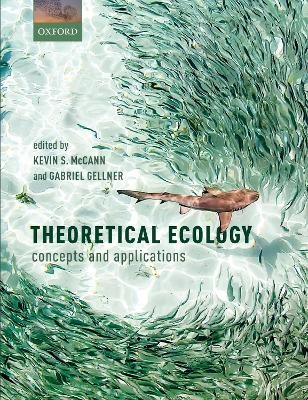
Theoretical Ecology
Oxford University Press (Verlag)
978-0-19-882428-2 (ISBN)
Theoretical Ecology: concepts and applications continues the authoritative and established sequence of theoretical ecology books initiated by Robert M. May which helped pave the way for ecology to become a more robust theoretical science, encouraging the modern biologist to better understand the mathematics behind their theories. This latest instalment builds on the legacy of its predecessors with a completely new set of contributions. Rather than placing emphasis on the historical ideas in theoretical ecology, the Editors have encouraged each contribution to: synthesize historical theoretical ideas within modern frameworks that have emerged in the last 10-20 years (e.g. bridging population interactions to whole food webs); describe novel theory that has emerged in the last 20 years from historical empirical areas (e.g. macro-ecology); and finally to cover the rapidly expanding area of theoretical ecological applications (e.g. disease theory and global change theory). The result is a forward-looking synthesis that will help guide the field through a further decade of discovery and development.
It is written for upper level undergraduate students, graduate students, and researchers seeking synthesis and the state of the art in growing areas of interest in theoretical ecology, genetics, evolutionary ecology, and mathematical biology.
Kevin McCann joined the faculty at the University of Guelph in 2003 as a Canadian Research Chair in Biodiversity after starting his career at McGill University in 1999. McCann is a leading theoretical ecologist with an expertise in food webs. McCann combines theoretical ecology with experimental and empirical work across aquatic ecosystems (lakes, rivers and coastal marine ecosystems). His research seeks to examine the biological structure underlying diversity and the critical relationship between this structure, ecosystem function and stability. In 2013, McCann was elected lifetime fellow to the Ecological Society of America for research achievements. Gabriel Gellner is a researcher at the University of Guelph, having completed his PhD in 2014. Gellner is a theoretical ecologist with wide ranging interests in food webs, mathematical and computational methods, and disease ecology. Gellner has worked with leading scientists in North America (University of Guelph, UC Davis, Colorado State, USDA) and internationally (Japan, Brazil, UK). His work looks at how complex networks can be decomposed into fundamental dynamic subsystems from a conceptual and methodological perspective.
1: Introduction Gabriel Gellner, Kevin S. McCann & Emily J. Champagne
2: Species coexistence Peter Chesson
3: The synergistic effects of interaction strength and lags on ecological stability Gabriel Gellner, Kevin S. McCann & Christopher Greyson-Gaito
4: Non-equilibrium dynamics and stochastic processes Karen C. Abbott
5: The impact of population structure on population and community dynamics André M. de Roos
6: Models for large ecological communities - a random matrix approach Stefano Allesina & Jacopo Grilli
7: A structural theory of mutualistic networks Jordi Bascompte & Antonio Ferrera
8: A data driven approach to complex ecological systems Michio Kondoh, Kazutaka Kawatsu, Yutaka Osada & Masayuki Ushio
9: Trait-based models of complex ecological network Ulrich Brose
10: Ecological networks: from structure to dynamics Sonia Kéfi
11: Trait-based ecological and eco-evolutionary theory Christopher A. Klausmeier, Colin T. Kremer & Thomas Koffel
12: Toward a general theory of metacommunity ecology Dominique Gravel & François Massol
13: Theories of diversity in disease ecology T. Alex Perkins & Jason R. Rohr
14: Climate change: Studying the effects of temperature on population and community dynamics David A. Vasseur
15: Alternative stable states, tipping points, and early warning signals of ecological transitions John M. Drake, Suzanne M. O'Regan, Vasilis Dakos, Sonia Kéfi & Pejman Rohani
16: Areas of current and future growth Kevin S. McCann & Gabriel Gellner
| Erscheinungsdatum | 23.07.2020 |
|---|---|
| Verlagsort | Oxford |
| Sprache | englisch |
| Maße | 195 x 249 mm |
| Gewicht | 810 g |
| Themenwelt | Naturwissenschaften ► Biologie ► Allgemeines / Lexika |
| Naturwissenschaften ► Biologie ► Botanik | |
| Naturwissenschaften ► Biologie ► Ökologie / Naturschutz | |
| Naturwissenschaften ► Biologie ► Zoologie | |
| ISBN-10 | 0-19-882428-9 / 0198824289 |
| ISBN-13 | 978-0-19-882428-2 / 9780198824282 |
| Zustand | Neuware |
| Informationen gemäß Produktsicherheitsverordnung (GPSR) | |
| Haben Sie eine Frage zum Produkt? |
aus dem Bereich


